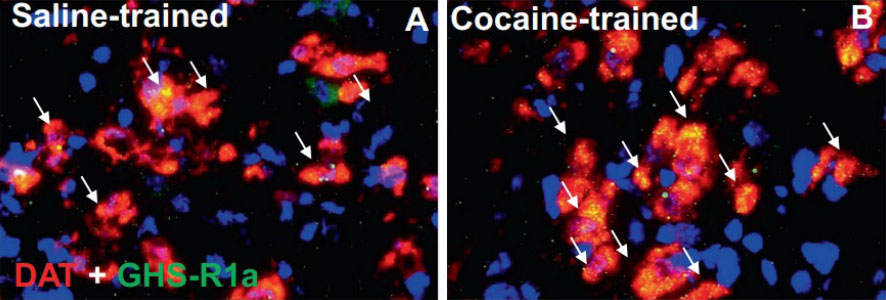Featured Paper of the Month – June 2022
Published in Neuropsychopharmacology by Zhi-Bing You, Ph.D. and Eliot Gardner, Ph.D., et al. of the NIDA IRP Neuropsychopharmacology Section.
Summary
Cocaine addiction is a significant medical and public concern. Despite decades of research effort, development of anti-addiction, anti-craving, and anti-relapse medications for cocaine addiction remains largely unsuccessful. To aid this medication development, more knowledge is needed about the brain circuits and mechanisms that underlie addiction. In the present article, the authors show that: (1) elevation of the brain hormone ghrelin by cocaine plays a critical role in cocaine-taking and in cocaine-seeking behaviors; (2) acquisition of cocaine-taking behavior is associated with enhancement of the stimulatory effects of cocaine and of cocaine-associated environmental cues on brain ghrelin; (3) cocaine-taking behavior is associated with an increase in genetic coding for ghrelin receptors in the reward, craving, and relapse circuits of the brain; (4) blockade of ghrelin signaling in the brain inhibits relapse to cocaine-seeking behavior; and (5) blockade of the effects of noradrenaline receptors outside the brain on ghrelin inside the brain inhibits cocaine-taking and relapse to cocaine addiction. These findings show that ghrelin plays an important role in brain mechanisms underlying cocaine addiction. Therefore, targeting the body’s ghrelin system may be a useful strategy for developing anti-cocaine-addiction medications.
Publication Information
In: Neuropsychopharmacology, 2021, ISSN: 1740-634X.

